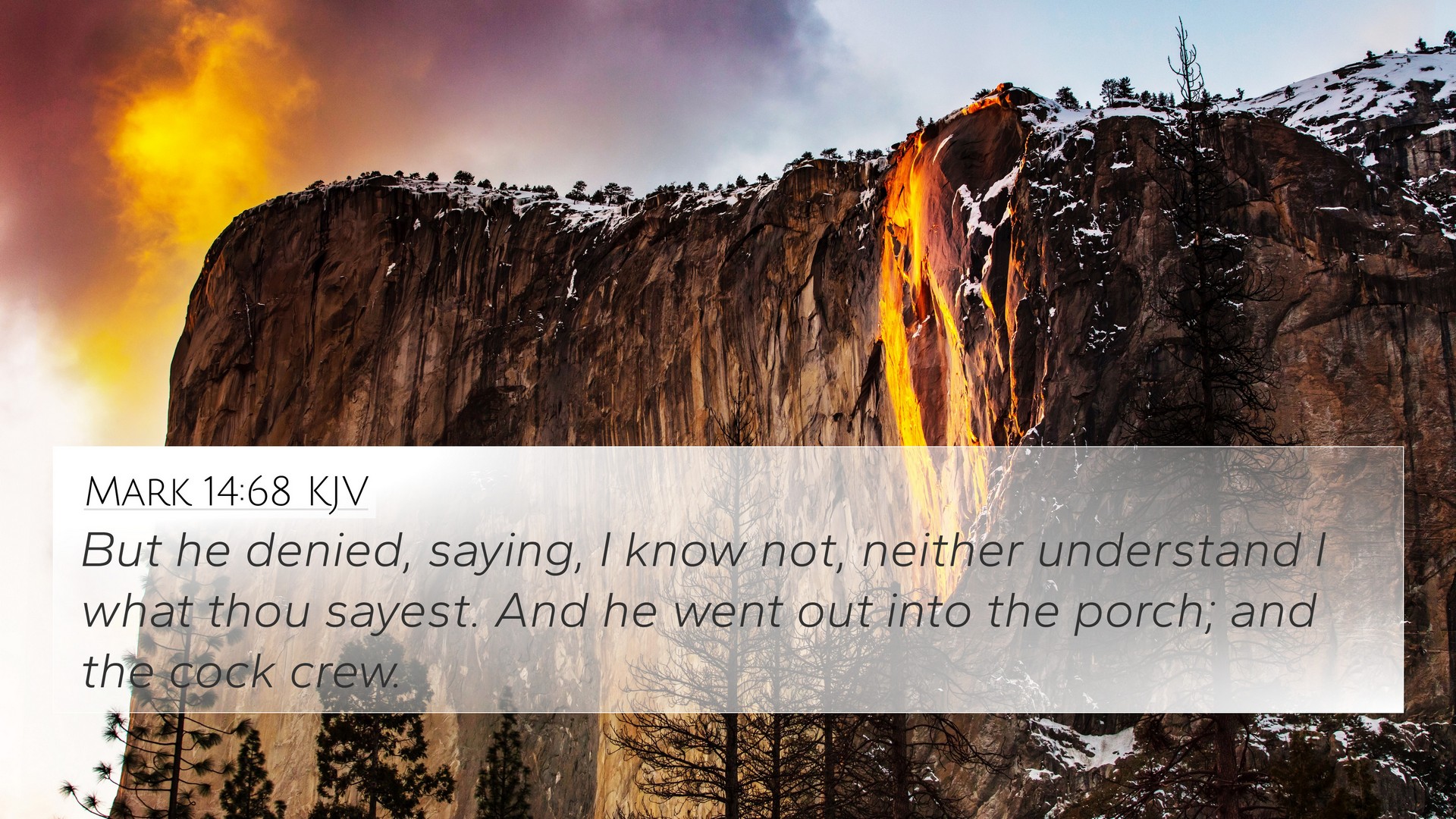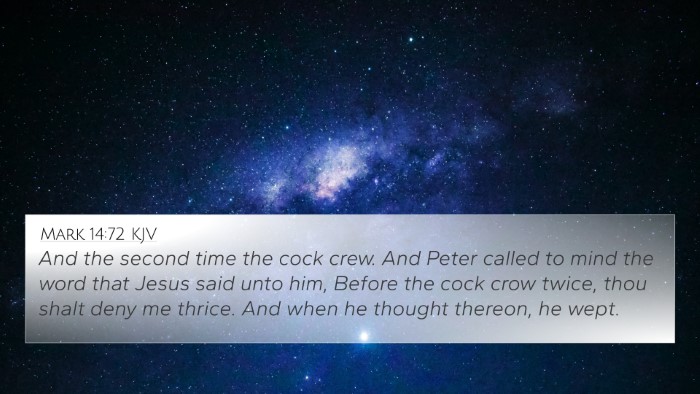Understanding Mark 14:68
Verse: "But he denied it, saying, 'I neither know nor understand what you are saying.' And he went out on the porch, and the rooster crowed."
Summary of Mark 14:68
This verse captures a pivotal moment during the trial of Jesus. It highlights Peter’s denial of knowing Him, which is significant given the context of Peter's earlier bold affirmations of loyalty. In this moment, Peter's fear leads him to distance himself from Christ, symbolizing the struggle between faith and fear.
Commentary Insights
- Matthew Henry:
Henry emphasizes the fulfillment of Jesus' prophecy regarding Peter's denial. It serves as a reminder of human frailty and the potential for weakness in even the strongest believers, especially in times of fear and pressure.
- Albert Barnes:
Barnes points out the progression of Peter's denial, explaining how it reflects the internal conflict between devotion to Christ and the instinct for self-preservation. This denial is a key element of the narrative that underscores the humanity of the disciples.
- Adam Clarke:
Clarke delves into the implications of Peter's response, noting the symbolic nature of the rooster's crow as a reminder of the warning Jesus had given to Peter. It illustrates the theme of regret and the deep remorse that follows betrayal.
Connections with Bible Verses
Mark 14:68 is closely linked to several key verses, which help to deepen understanding through cross-referencing:
- Matthew 10:33: "But whoever denies me before men, I also will deny before my Father who is in heaven." - This verse reflects the serious consequences of public denial of faith.
- Luke 22:54-62: The full account of Peter's denial offers more context and highlights the emotional turmoil experienced by Peter.
- John 13:38: Jesus predicting Peter's denial adds depth to the understanding of this event and the sovereign foreknowledge of Christ.
- 1 Corinthians 10:12: "Therefore let anyone who thinks that he stands take heed lest he fall." - A warning about pride and the potential for failure.
- Galatians 2:11-13: Paul's confrontation with Peter over hypocrisy illustrates consistent challenges believers face in remaining steadfast.
- Psalm 38:4: Reflecting a sentiment of deep remorse and the burdens of guilt that resonated with Peter's experience post-denial.
- Romans 3:23: "For all have sinned and fall short of the glory of God." - Reminds readers that human failure is a common experience.
Thematic Connections
The verse speaks to several overarching themes within the Bible:
- Human frailty and the capacity for denial, emphasized in Peter's experience.
- The consequences of fear overshadowing faith, illustrated by Peter's actions.
- The importance of repentance and redemption, which becomes critical in Peter's later restoration.
Cross-Referencing Resources
Those studying this verse may find the following tools and methods beneficial for deeper insights:
- Bible concordance for finding related themes and verses.
- Comparative Bible verse analysis between the Gospels.
- Bible cross-reference guide to uncover thematic connections.
- Cross-reference systems for detailed biblical studies.
User Intent Insights
For those exploring the connections between this verse and others, consider these inquiries:
- What verses are related to Mark 14:68?
- How do Mark 14:68 and Matthew 10:33 connect?
- Find cross-references for Peter's denial in different Gospel accounts.
Conclusion
Mark 14:68 stands as a critical juncture in the narrative of Peter’s discipleship and in Jesus' impending sacrifice. The implications of Peter’s denial echo throughout the New Testament, offering lessons on faith, failure, and the possibility of redemption. Through the use of thematic and scriptural cross-referencing, readers can gain a multifaceted understanding of this poignant moment.







